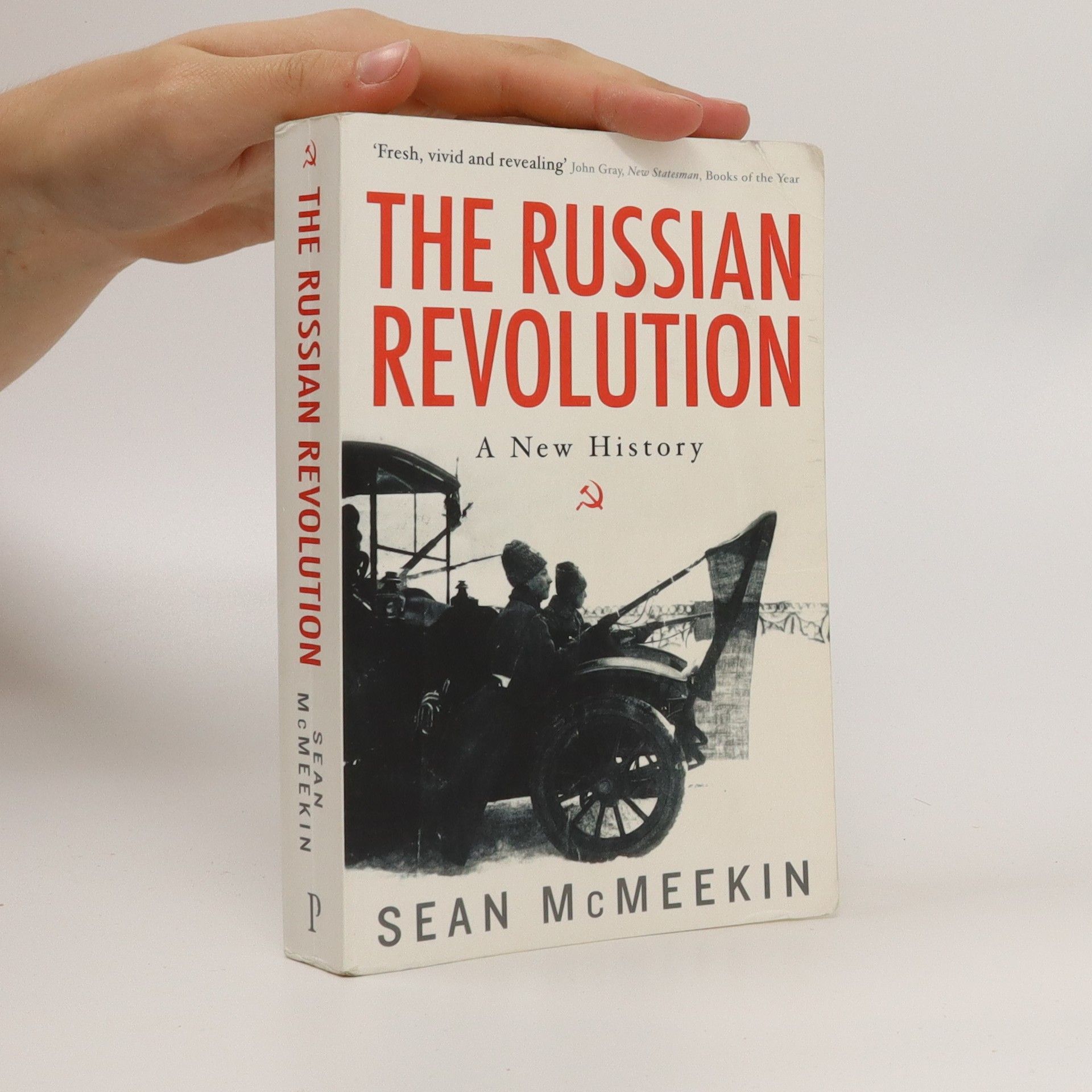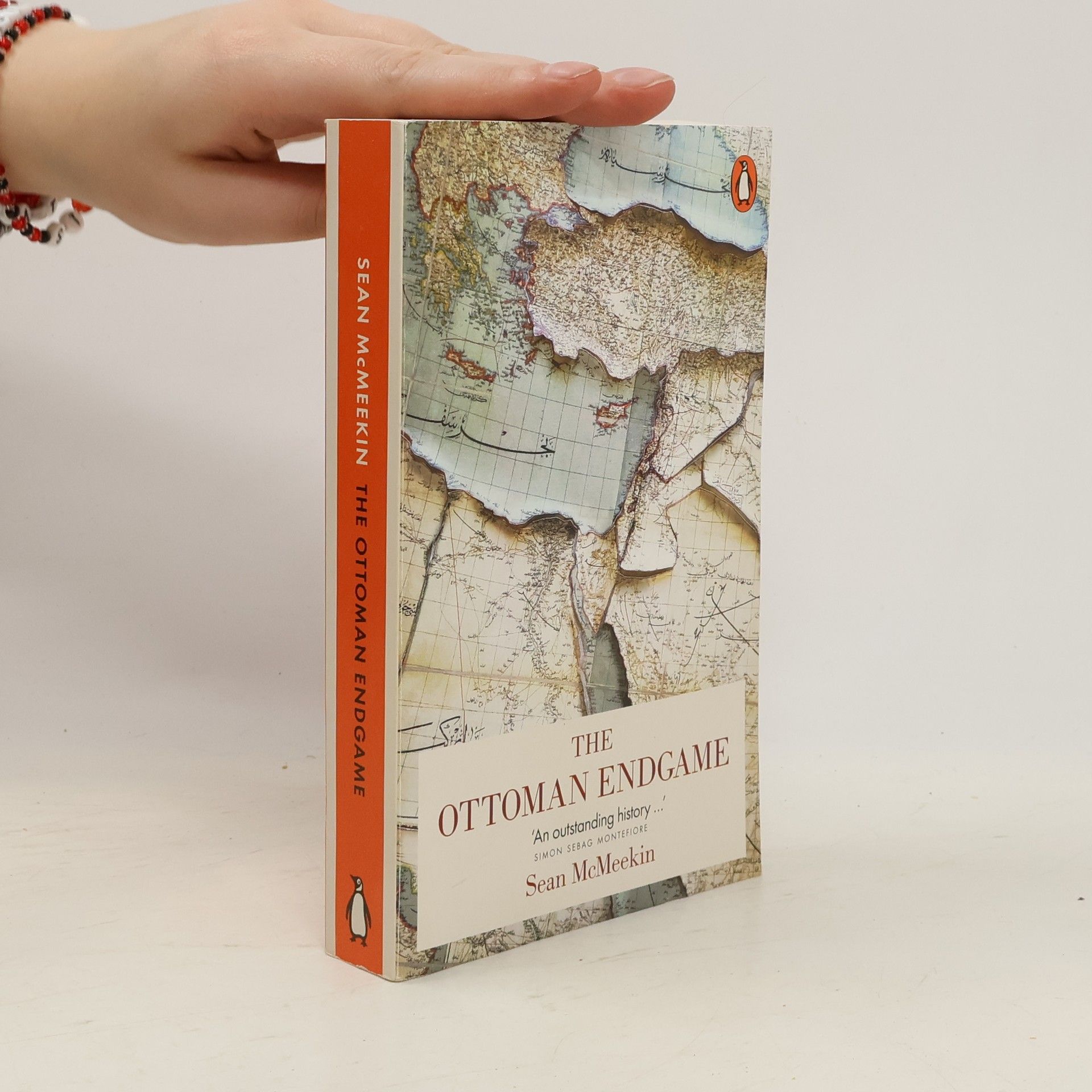Auch 100 Jahre nach dem Ersten Weltkrieg bleibt die Schuldfrage umstritten. Sean McMeekin hat jahrelang Archive durchforstet und diplomatische Intrigen untersucht, um Russlands Rolle im Krieg zu analysieren. Sein Ergebnis ist brisant: Die wahren Drahtzieher waren in St. Petersburg. Russland nahm bewusst das Risiko eines Kriegs in Kauf, um strategisch wichtige Landengen am Schwarzen Meer zu sichern. Die aktuelle Krim-Krise zeigt, dass Russland bei der Durchsetzung seiner territorialen Ansprüche nicht von Konflikten mit der Weltgemeinschaft abgehalten wird. McMeekin belegt, dass russische Staatsmänner durch gezielte politische Entscheidungen den Krieg im Nahen Osten mit auslösten, um auf Kosten des Osmanischen Reichs das Territorium zu erweitern und ungehinderten Zugang zu den Schwarzmeerengen zu erhalten. Frankreich und England in einen Krieg gegen Deutschland zu manövrieren, erschien als beste Möglichkeit, dieses Ziel zu erreichen. Russland war das Land, das am meisten Druck ausübte, um die Eskalation zu forcieren. Doch der entfesselte Konflikt forderte auch Millionen russischer Opfer. McMeekins Studie fordert eine Neubewertung der Schuldfrage und argumentiert, dass Russland ebenso verantwortlich für den Ausbruch des Krieges war wie Deutschland.
Sean McMeekin Bücher







Am 28. Juni 1914 wird der österreichische Erzherzog Franz Ferdinand erschossen, was zunächst als Randnotiz erscheint, aber einen Konflikt entfesselt, der in den Ersten Weltkrieg mündet. Die Frage, wie der Krieg über Nacht ausbrechen konnte und wer die Drahtzieher waren, steht im Mittelpunkt der Untersuchung. Der US-amerikanische Historiker Sean McMeekin entdeckte in Berlin unbekannte Aktennotizen und Depeschen, die belegen, dass vor allem russische und französische Interessen den Konflikt vorantrieben. Die entscheidenden Wochen zwischen Juni und August 1914 werden minutiös recherchiert und dokumentiert, spannend wie ein Thriller. Der Erste Weltkrieg stellte die größte Katastrophe in Europa dar, doch viele historische Hintergründe blieben lange im Dunkeln. Während Experten oft den deutschen und österreichisch-ungarischen Militarismus verantwortlich machen, zeigt McMeekin mit neuen Quellen, dass die aggressivsten Kriegstreiber aus Russland und Frankreich kamen. Neben dem österreichischen Außenminister von Berchtold und dem deutschen Reichskanzler Bethmann Hollweg spielten auch der russische Außenminister Sasonow und der französische Präsident Poincaré eine entscheidende Rolle. Die fesselnde Erzählung beschreibt den Ausbruch des Ersten Weltkriegs vom ersten blutigen Akt bis zum Kriegseintritt Englands und wie eine kleine Gruppe von Männern den Verlauf des zwanzigsten Jahrhunderts prägte.
In this remarkable, ground-breaking new book Sean McMeekin marks a generational shift in our view of Stalin as an ally in the Second World War. Stalin's only difference from Hitler, he argues, was that he was a successful murderous predator. With Hitler dead and the Third Reich in ruins, Stalin created an immense new Communist empire. Among his holdings were Czechoslovakia and Poland, the fates of which had first set the West against the Nazis and, of course, China and North Korea, the ramifications of which we still live with today. Until Barbarossa wrought a public relations miracle, turning him into a plucky ally of the West, Stalin had murdered millions, subverted every norm of international behaviour, invaded as many countries as Hitler had, and taken great swathes of territory he would continue to keep. In the larger sense the global conflict grew out of not only German and Japanese aggression but Stalin's manoeuvrings, orchestrated to provoke wars of attrition between the capitalist powers in Europe and in Asia. Above all, Stalin's War uncovers the shocking details of how the US government (to the detriment of itself and its other allies) fuelled Stalin's war machine, blindly agreeing to every Soviet demand, right down to agents supplying details of the atomic bomb.
"Between 1911 and 1923, a series of wars--chief among them World War I--would engulf the Ottoman Empire and its successor states. It is a story we think we know well, but as Sean McMeekin shows us in this revelatory new history, we know far less than we think. Drawing from his years of ground-breaking research in newly opened Ottoman and Russian archives, The Ottoman Endgame brings to light the entire strategic narrative that led to an unstable new order in postwar Middle East--much of which is still felt today"--
Now in paperback, the first major new history of the Russian Revolution in a decade combines cutting-edge scholarship and a fast-paced narrative to shed new light on a great turning point of the twentieth century.
Červenec 1914. Poslední dny před válkou
- 464 Seiten
- 17 Lesestunden
Renomovaný historik Sean McMeekin nám ve své knize Červenec 1914 dokazuje, že první světové válce bylo možné zabránit, kdyby zde neexistovala nepočetná skupina státníků, kteří se v průběhu měsíce následujícího po Ferdinandově smrti rozhodli, že tohoto atentátu využijí jako rozbušku pro rozpoutání dlouho očekávané konfrontace evropských mocností. McMeekin nás seznamuje s pozoruhodnými novými prameny z různých evropských archivů a dokazuje, jak jediný měsíc dokázal změnit podobu dvacátého století.
KTO NAPRAWDĘ WYGRAŁ II WOJNĘ ŚWIATOWĄ? GORZKA PRAWDA O ZWYCIĘZCACH I POKONANYCH Wszystko, co myśleliśmy o II wojnie światowej, było uproszczeniem. To nie była wojna Hitlera. Gdy Japonia atakowała Mandżurię, nie był jeszcze nawet u władzy. Gdy wojna się kończyła, od 4 miesięcy już nie żył. To była wojna innego tyrana. Jego mocarstwo rozciągało się od Europy po Azję. Był u władzy od samego początku konfliktu i wiele lat po nim. Jego armie uczestniczyły przez cały czas we wszystkich zbrojnych konfliktach kontynentu euroazjatyckiego. Jego państwo stanowiło przedmiot pożądania dwóch głównych agresorów należących do państw Osi. Obu pokonał. Ogromnie powiększył swoje imperium i zdobył władzę nad milionami ludzkich istnień. Miliony też posłał na śmierć. Z wojny wyszedł jako triumfator, zagarniający wojenne łupy. To nie była wojna Hitlera ani nikogo innego. To była wojna Stalina. Zdawało się, że o II wojnie światowej nie można powiedzieć nic nowego. Sean McMeekin udowadnia, że wszystko, co o niej sądziliśmy, było przekłamaniem.
